
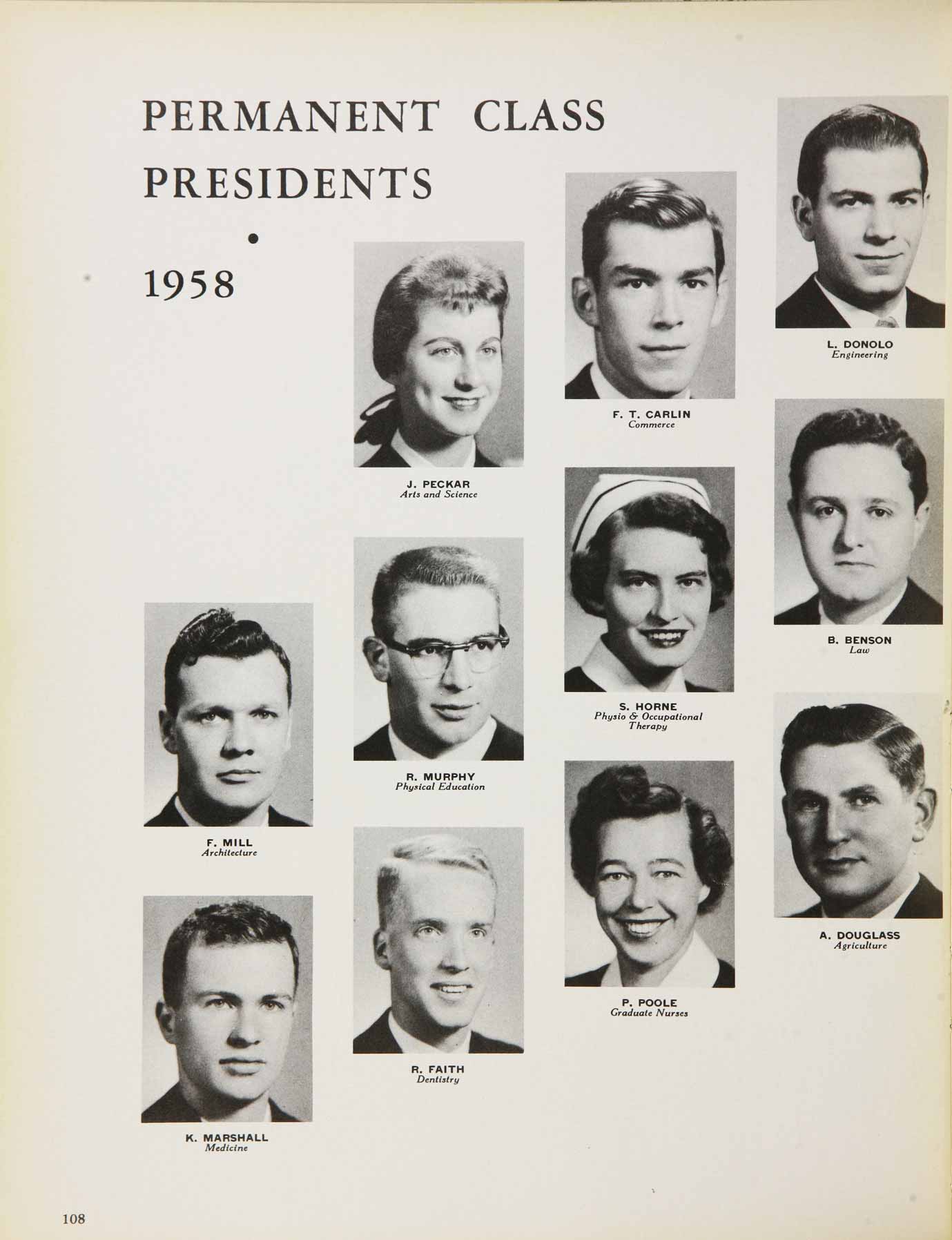
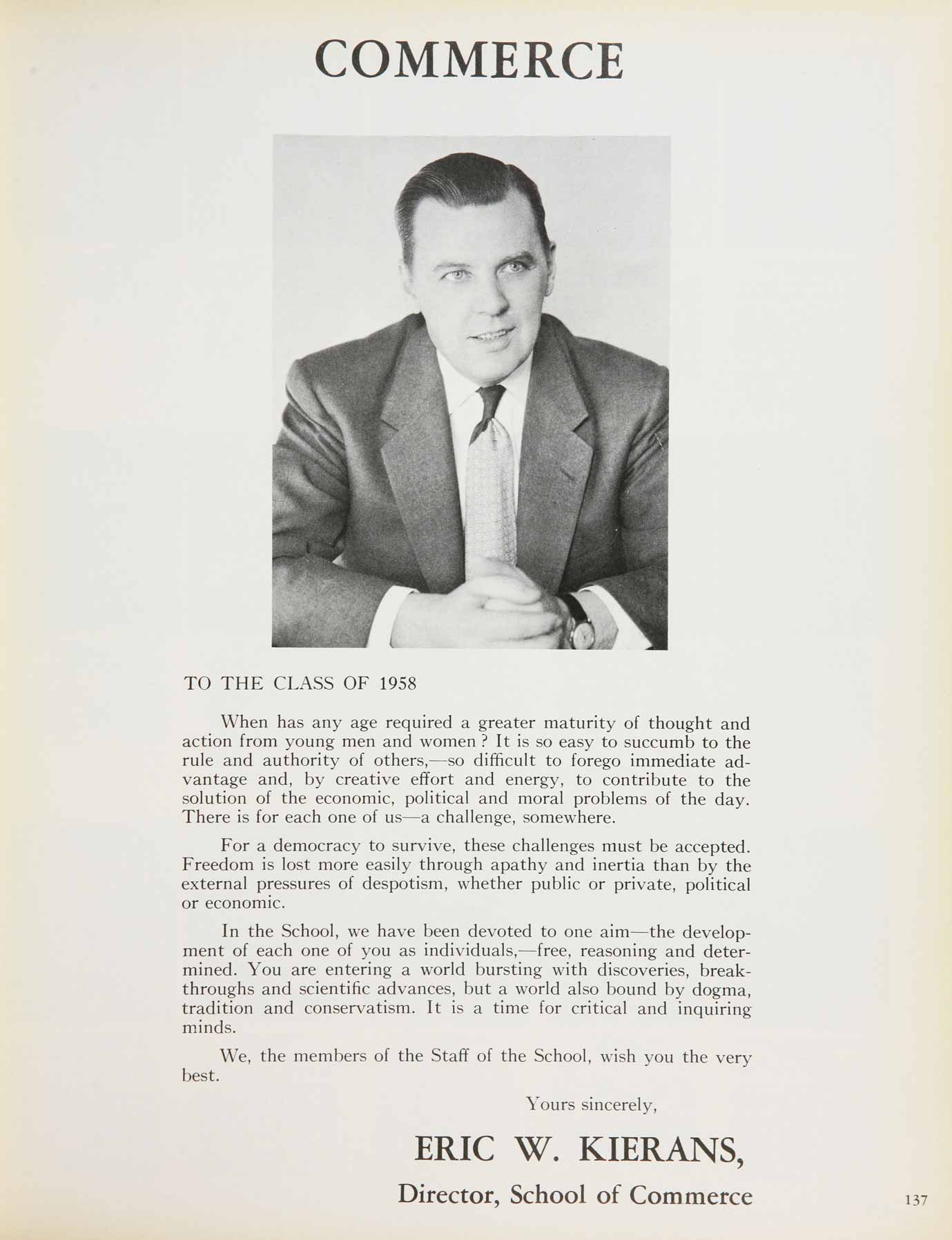
Commerce
To the Class of 1958
When has any age required a greater maturity of thought and action from young men and women? It is easy to succumb to the rule and authority of others,—so difficult to forego immediate advantage and, by creative effort and energy, to contribute to the solution of the economic, political and moral problems of the day. There is for each one of us—a challenge, somewhere.
For a democracy to survive, these challenges must be accepted. Freedom is lost more easily through apathy and inertia than by the external pressures of despotism, whether public or private, political or economic.
In the School, we have been devote to one aim—the development of each one of individuals,—free, reasoning and determined. You are entering a world bursting with discoveries, break-throughs and scientific advances, but a world also bound y dogma, tradition and conservatism. It is a time for critical and inquiring minds.
We, the members of the Staff of the School, wish you the very best.
Yours sincerely,
Eric. W. Kierans,
Director, School of Commerce


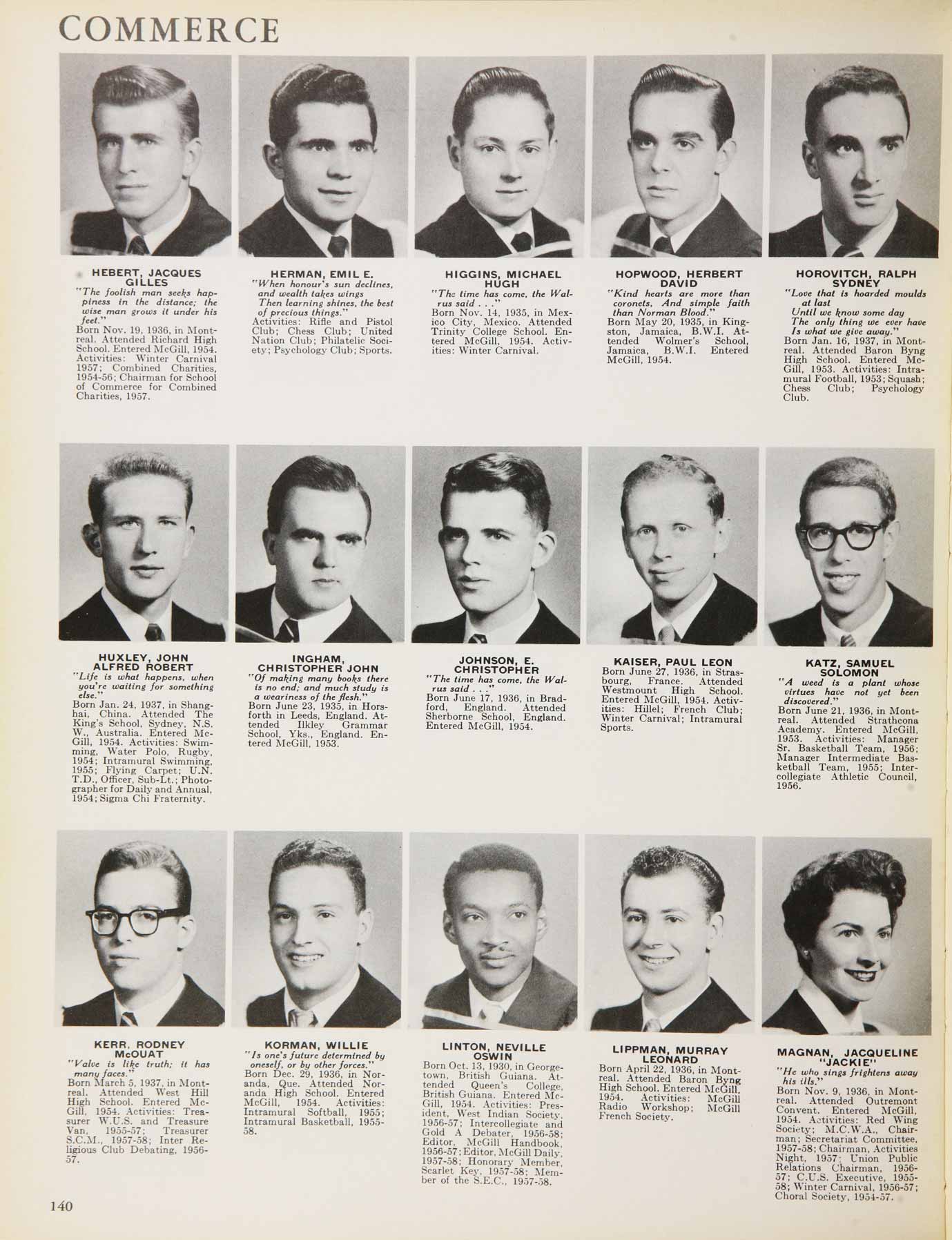
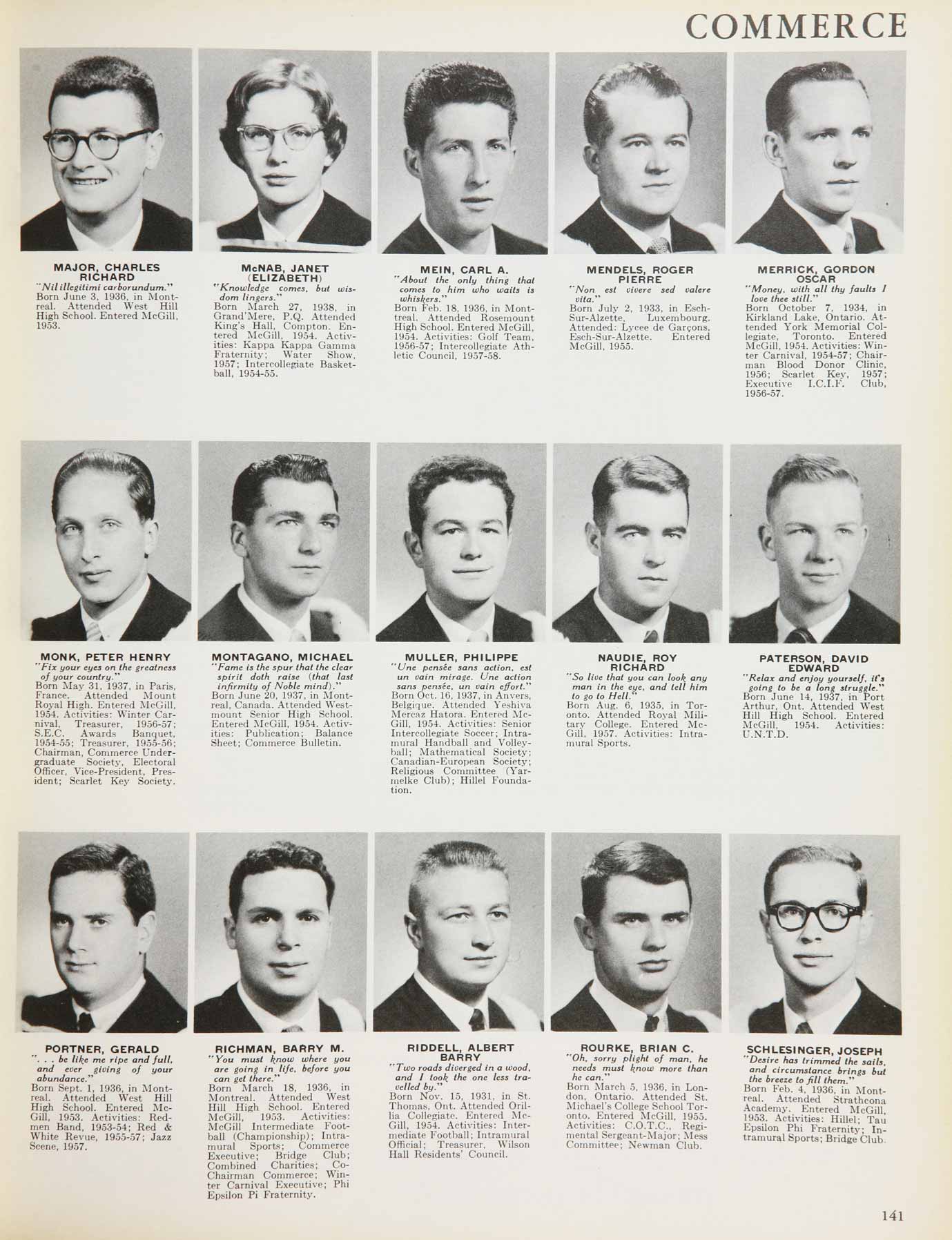
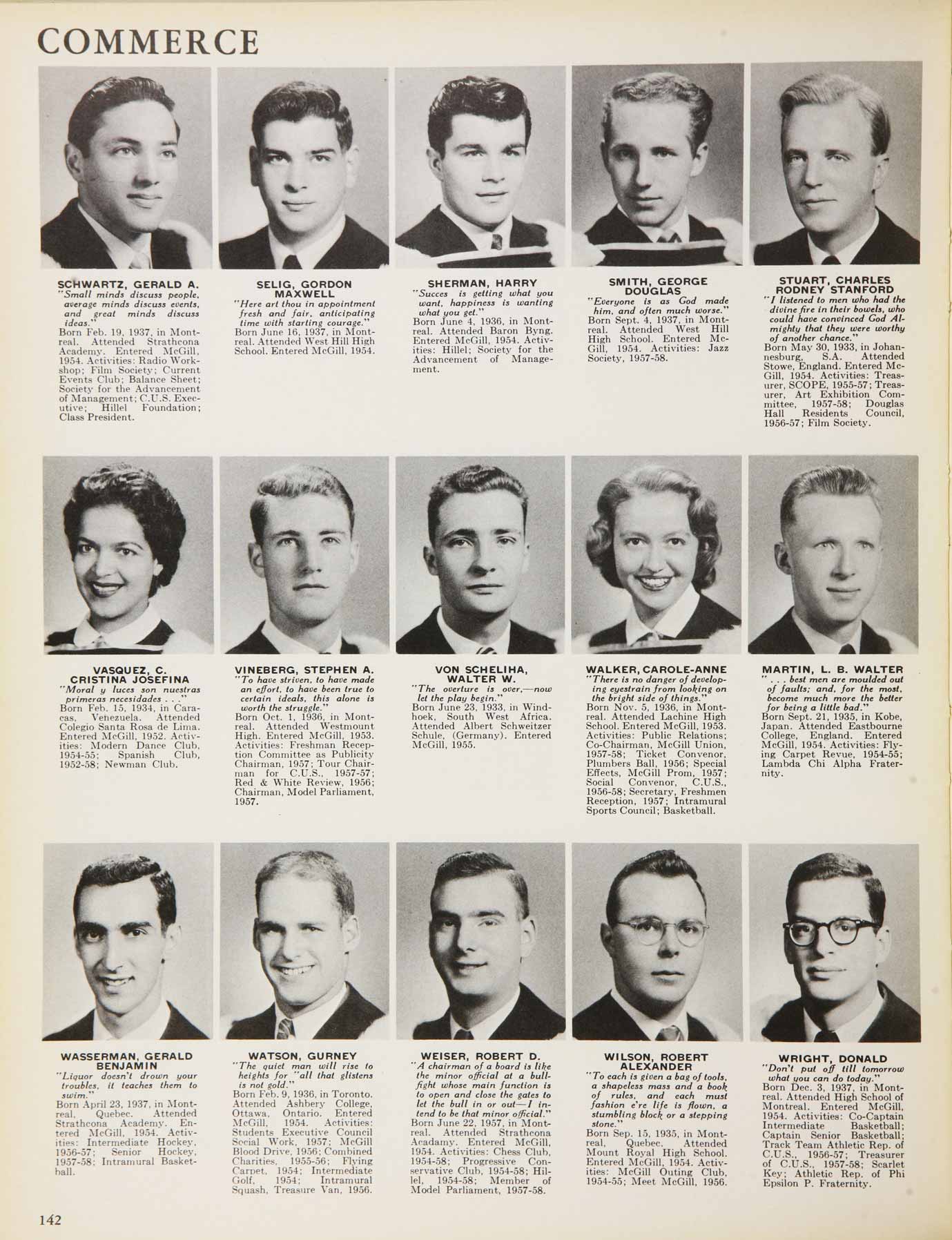
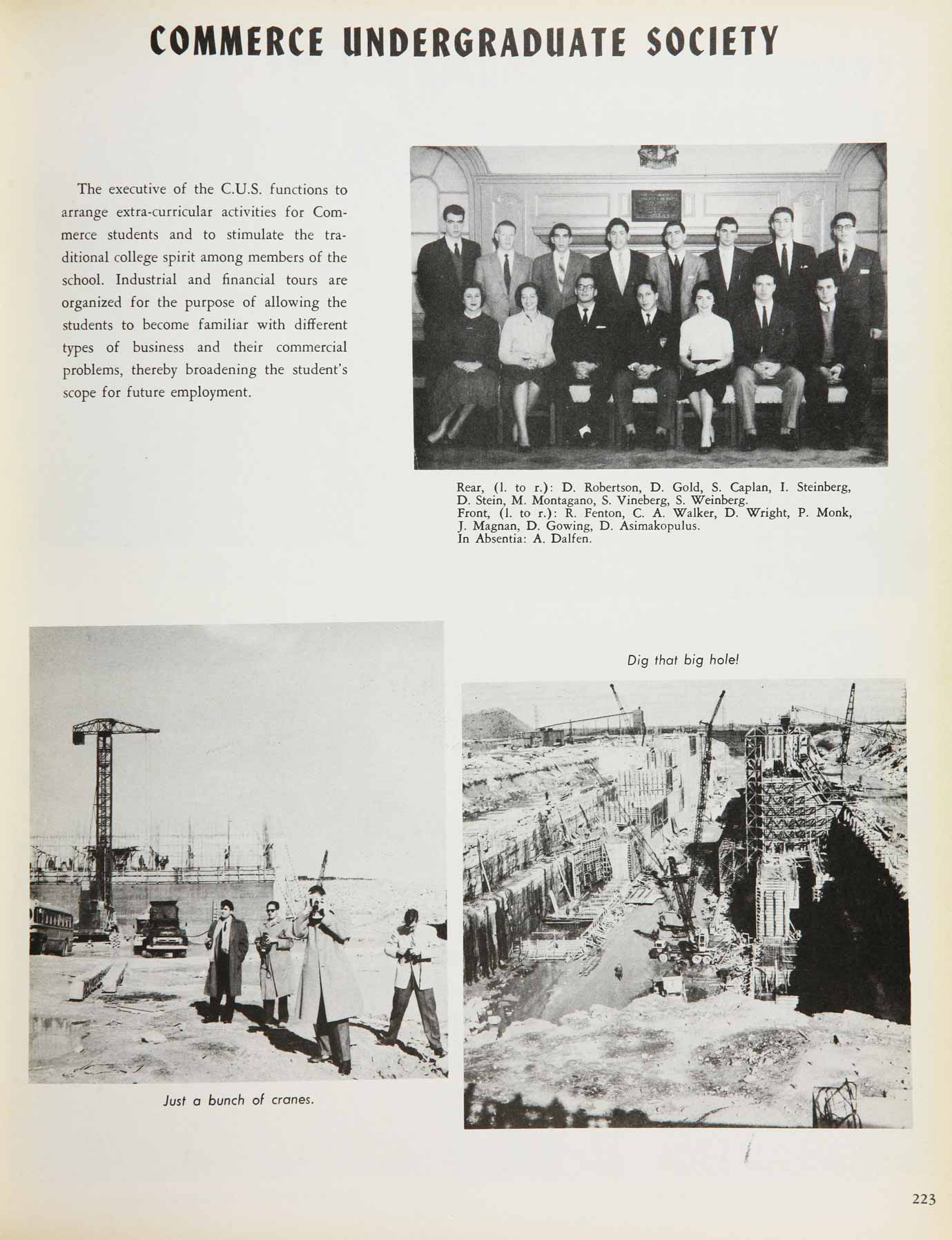
Commerce Undergraduate Society
Rear, (l. to r.): D. Robertson, D.. Gold, S. Caplan, I. Steinberg, D. Stein, M. Montagano, S. Vineberg, S. Weinberg.
Front, (l. to r.): R. Fenton, C. A. Walker, D. Wright, P. Monk, J. Magnan, D. Gowing, D. Asimakopulus.
In Absentia: A. Dalfen.
The executive of the C.U.S. functions to arrange extra-curricular activities for Commerce students and to stimulate the traditional college spirit among members of the school. Industrial and financial tours are organized for the purpose of allowing the students to become familiar with different types of business and their commercial problems, thereby broadening the student’s scope for future employment.

